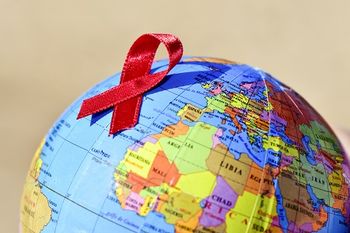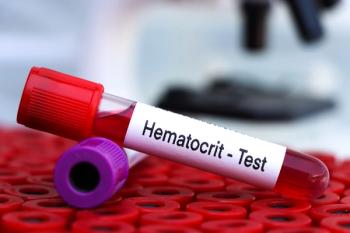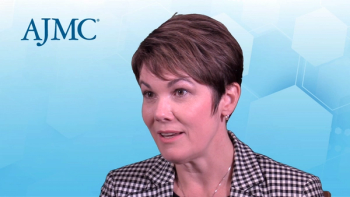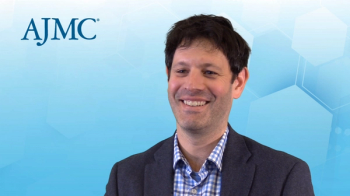
Amneal Pharmaceuticals this week launched its pegfilgrastim biosimilar, Fylnetra (pegfilgrastim-pbbk), for the treatment and prevention of febrile neutropenia, making it the sixth biosimilar referencing Neulasta to enter the US market.

Amneal Pharmaceuticals this week launched its pegfilgrastim biosimilar, Fylnetra (pegfilgrastim-pbbk), for the treatment and prevention of febrile neutropenia, making it the sixth biosimilar referencing Neulasta to enter the US market.

Having at least 2 episodes of severe hypoglycemia that required hospitalization was found to be a major predictor for time to death in individuals with type 1 diabetes (T1D).

Despite the use of nocturnal noninvasive ventilation (NIV), patients report having poor quality of sleep, according to a recent study.

In the phase 3 SINUS-24 and SINUS-52 trials, dupilumab improved clinical outcomes and and health-related quality of life among patients with chronic rhinosinusitis with nasal polyps (CRSwNP) and clinical features of obstructive lung disease.

Between 2010 and 2020, pediatric antiretroviral therapy (ART) coverage tripled, but still consistently lagged behind adult ART coverage.

New studies seem to show 2 doses of mpox vaccine more effective than 1; US drug overdoses peaked in 2022; fertility app Premom will pay $200,000 after sharing sensitive user data.

Coverage of our peer-reviewed research and news reporting in the health care and mainstream press.

Children with severe asthma who moved to better-resourced neighborhoods in Baltimore showed improvement of symptoms, according to a recent study.

A recent study suggests that monitoring anxiety and distress levels during watch-and-wait disease management time frames may improve the patient experience.

Myasthenia gravis expert James F. Howard, Jr, MD, professor of neurology at the University of North Carolina at Chapel Hill, explains the burdens that step therapy places on patients with rare diseases and their providers.

Jessica Robinson-Papp, MD, MS, professor of neurology at Icahn School of Medicine at Mount Sinai, talks about how autonomic neuropathy in people with HIV needs more study.

Experts report that among skin diseases, atopic dermatitis has the lowest reported quality of life.

Data suggest a substantial reliance on established therapies for polycythemia vera, despite access to all available treatment options.

The Biden administration said it will expand health care access, including mental health care, to students; depression reaches an all-time high in the United States; the FDA’s independent vaccine advisers are meeting to discuss the safety and effectiveness of a respiratory syncytial virus (RSV) vaccine.

Pulmonary arterial hypertension (PAH) is the only major diagnostic indication for transplantation that is not a parenchymal pulmonary process.

Pharmacists at the Pharmacy Quality Alliance (PQA) 2023 Annual Meeting discussed the role of data collection and analysis in the movement toward health equity.

Melinda Gooderham, MD, MSc, FRCPC, Peterborough Regional Health Centre in Ontario, Canada, discusses recent trials and studies that have been conducted on emerging therapies for patients with atopic dermatitis.

Milena Pavlova, MD, neurologist, and medical director of the sleep testing center at Brigham and Women’s Faulkner hospital, talks about how factors such as the sedative effects of anti-epileptic medications can mask sleep issues and diagnoses in people with epilepsy.

A new small case series finds higher rates of symptom flares in individuals who have muscle-specific tyrosine kinase (MuSK)–positive myasthenia gravis (MG) than previous research.

Osimertinib plus chemotherapy showed a statistically significant improvement in progression-free survival (PFS) vs osimertinib alone in patients with epidermal growth factor receptor–mutated (EGFRm) advanced non–small cell lung cancer (NSCLC)

All technology-based interventions substantially improved mental health, but those partially supported by health care providers were shown to be most effective.

Authors offered specific recommendations for improving publishing and adoption of algorithmic processes focused on type 2 diabetes (T2D) going forward.

Strict inclusion and exclusion criteria in clinical trials means findings on health-related quality of life (HRQOL) may not be generalizable to the real-world setting.

David Maahs, MD, PhD, professor of pediatrics at Stanford University and division chief of pediatric endocrinology at Lucile Packard Children’s Hospital, highlights key points from his review on pediatric diabetes technology and therapy.

Black populations suffered 1.6 million excess deaths in the past 20 years, new studies find; the Federal Trade Commission (FTC) sues to block Amgen from acquiring Horizon Therapeutics, citing 2 drugs that have no competition; cancer drug shortages are approaching an all-time high.

Focus groups show patients who have sickle cell disease (SCD) like the idea of a digital health app for cognitive behavioral therapy (CBT) that allows them to make meaningful connections with people with shared experiences.

Precision medicine starts with the patient-physician relationship, and this also involves an entire care team, emphasized Sigrun Hallmeyer, MD, medical oncologist with Advocate Health.

The risk of death from influenza or pneumonia was almost 50% lower among individuals who did aerobic physical activity, even if it was less than the recommended amount.

Immune checkpoint inhibitors (ICIs) can increase life expectancy among patients who have non–small cell lung cancer (NSCLC), but they also carry the risk of immune-related adverse events.

Joel Segel, PhD, associate professor of health policy and administration at Penn State University, talks about what he's looking forward to as a member of The American Journal of Accountable Care's editorial board.

259 Prospect Plains Rd, Bldg H
Cranbury, NJ 08512
© 2025 MJH Life Sciences®
All rights reserved.
